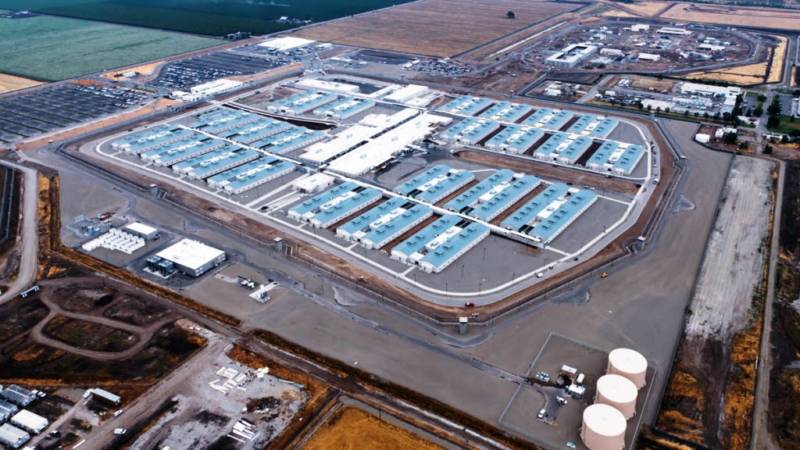Officials from the California Department of Rehabilitation and Corrections are investigating the presence of deadly Legionnaires' disease bacteria at a Central Valley prison.
State Officials Investigating Legionnaires' Disease Outbreak at Stockton Prison

Last month, one inmate at the California Health Care Facility in Stockton (CHCF) died of the disease — considered a severe form of pneumonia — and a second inmate tested positive for the bacteria but is now in stable condition.
Corrections officials had thought the bacteria was isolated to one housing unit where the two inmates lived, but new testing this week found traces of it in the water supply at the site in addition to two neighboring youth correctional facilities.
In response to the preliminary test results, CDCR is discontinuing the use of potable water at the facilities, providing bottled water to staff and inmates, installing self-filtering showerheads and increasing education efforts on the bacteria, according to a press release from the department.
Corrections officials also revealed in their release that nearly 30 inmates at the Stockton prison have pneumonia. As of Thursday, 26 out of those 29 patients tested negative for Legionnaires' disease.
Legionnaires' disease does not spread from person to person; it is contracted from the spread of Legionella bacteria through water vapor. The bacteria can grow in both potable and non-potable water systems.
The disease is considered particularly dangerous for older people and those with underlying health issues, according to the federal Centers for Disease Control and Prevention.
CHCF houses some 2,600 inmates needing medical or mental care, many of whom are elderly and especially vulnerable to the disease.
"We're talking about hundreds of people who are housed in what are rightly considered medical inpatient units, where the necessity for sanitation is of obvious importance," said Steven Fama, an attorney with the nonprofit Prison Law Office.
In many cases, the medical care that inmates receive at CHCF is a matter of life and death, according to Fama who stressed that it will be incumbent upon corrections officials to make sure that care continues to be provided as they work to mitigate the bacteria's presence at the facility.
In 2015, nearly 80 inmates were sickened during a Legionnaires' outbreak at San Quentin State Prison. Fama — who inspected the conditions within San Quentin at the time — said CHCF is an entirely different situation.
"Whereas at San Quentin the medical staff could appropriately shift almost all its attention to surveillance and treatment, at Stockton the focus has to be broader because there are many people with complex medical situations who need ongoing care," he said.
Fama said he visited CHCF on Friday to "see and hear firsthand" how corrections officials are responding to the situation.
According to CDCR, visitors will still be allowed to enter the Stockton facility as officials continue to investigate the bacteria's presence. Notices will be posted at entrances and information provided to visitors about the disease, officials said.
California Correctional Health Care Services, California Department of Public Health and San Joaquin County Public Health are all assisting CDCR in their investigation at CHCF and the neighboring youth facilities.
